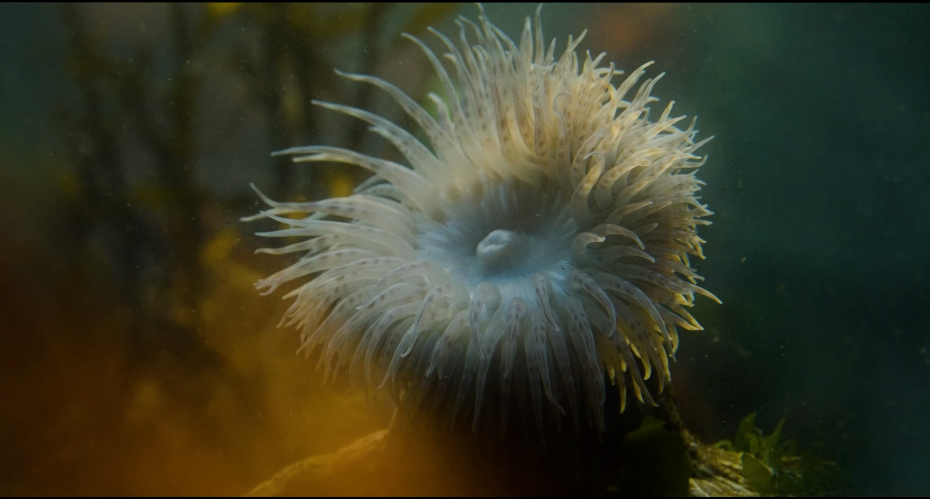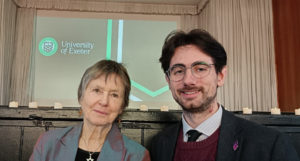Exeter researcher nominated for a “Green Oscar” for innovative wildlife film

Rockpool is a 17-minute film designed to give the viewer “quiet encounters”
A University of Exeter researcher’s innovative wildlife film has been nominated for a “Green Oscar”.
Dan McKay, a multidisciplinary artist and academic, was part of the team who made Rock Pool, which is nominated for its sound at the Wildscreen Panda Awards.
The Wildscreen Panda Awards are the highest honours in the international natural world storytelling film, TV and content industry.
Rock Pool is a 17-minute film designed to give the viewer “quiet encounters” and awaken a sense of awe for the hidden rhythms of the life all around us.
Rock Pool shows murky kelp forests, scallop burial grounds and a UV lit cosmic expanse, which are animated by an innovative experimental soundscape and seamless, layered montage. The film renders the miniscule titanic and works upon the senses to coax the attention of its viewer into a quiet sense of awe.
Rock Pool is the first project by SOUP Audiovisual, a collective comprised of Dan, who is director and editor, producer and director of photography Adam Radage and sound designer and musician Tom Bosher.
Dan is currently undergoing a PhD by practice in film at University of Exeter. He has previously graduated from University of Exeter with a BA in Film and Television studies and Falmouth University with an MA in Film and Television Production. Dan’s core interests involve ecology, slow cinema and the soundscape.
Adam has a background in biological sciences, graduating with a genetics BSc from University College London. He then worked in wildlife conservation abroad, working for companies such as Panthera and Operation Wallacea, before using his acquired field work skills as an ecological consultant in the UK. Since completing his MA in film and television from Falmouth University, Adam has combined his love for nature with cinematography using his scientific understanding to approach and film wildlife in new and novel ways.
Tom is fascinated by the emotional power of sound in cinematic storytelling. After studying English literature at the University of Exeter, he discovered sound design as a powerful non-verbal language capable of eliciting visceral emotional responses and unpacking complex ideas. This led him to pursue a masters degree in sound design at the National Film and Television School (NFTS), where he continues to refine his craft.
Dan said: “The film emerged from a desire to slow down and reorient the viewer’s attention toward the overlooked, the minute, and the strange beauty of natural microcosms. We were fascinated by the liminal world of rock pools, as environments that are at once familiar and alien, ephemeral and ancient. We wanted to create a sensory and immersive piece that would evoke a kind of intimate presence with nature rather than the conventional mode of labelling its constitutive parts.
“The film draws upon my research into slow cinema, the haptic, and soundscape, as well as the belief that film can be a deeply embodied experience. Through layered montage and a carefully constructed soundscape, we sought to build an audiovisual language that bypasses narrative and instead speaks directly to the viewer’s body and emotions.
“Working with Adam, whose background in ecology brought a scientific sensitivity and reverence for the natural world, allowed the project to develop in ways that honoured both artistic and ecological integrity. Our collaboration was rooted in a shared commitment to experimentation, and a belief that film can foster not only aesthetic engagement, but also a subtle shift in the way we perceive the more-than-human world.
“This is a huge milestone for us and it is an absolute honour to be nominated alongside names such as David Attenborough, Netflix, and Silverback Films at the so-called “Green Oscars”, which are considered the highest accolade in wildlife film globally.”
The awards will be held in Bristol on 22 October.



